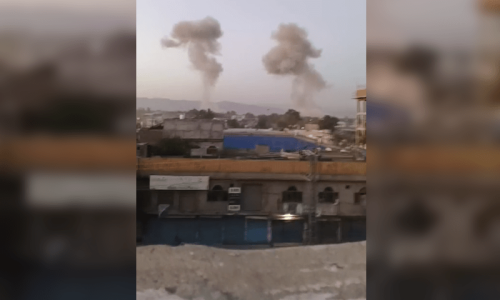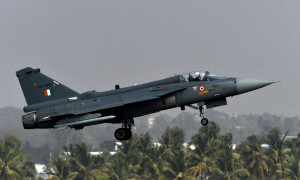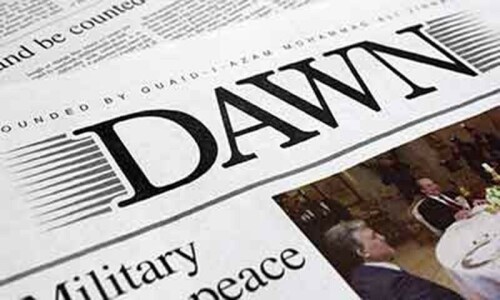ISLAMABAD: Amid a major drop in demand, public sector power companies have sought a 57 paise per unit negative fuel price adjustment (FCA) in electricity bills to refund Rs7.2 billion overcharged to consumers last month.
This will be the second month in a row that FCAs remain negative, mainly because of robust fuel allowances allowed by the National Electric Power Regulatory Authority (Nepra) through a 20pc increase in base tariff effective from July 1 to June 30, 2025.
Almost 79pc of the total power supply during the month flowed from domestic fuel sources, more than half at zero fuel cost.
Last month, the regulator had approved a 37 paise per unit negative FCA adjustment for consumption in July. However, since the FCA is only for one month, the 37 paise relief would be replaced by 57 paise with Nepra’s approval.
The effective cut would thus work out to be about 20 paise per unit or about Rs1.2bn because negative FCA is not applicable to consumers with low consumption.
The Nepra has called a public hearing on Sept 26 to take up a petition filed by the Central Power Purchasing Agency (CPPA) — a subsidiary of the power division — seeking “a decrease of Rs0.5755/kwh over the reference fuel charge…Rs9.3877 per unit”.
The CPPA said the power companies had charged Rs9.39 per unit fuel cost last month, which actually turned out to be Rs8.81 per unit.
The CPPA, acting as commercial agent for Discos, proposed through a petition that 57 paise per unit negative FCA should be adjusted to consumers in the billing month of October for electricity consumed in August.
It claimed the reference fuel cost for August was set at Rs9.39 per unit, but the actual cost turned out to be Rs8.81 per unit.
It said 13,179 gigawatt hour (GWh) electricity was generated at an estimated fuel expenditure of Rs98.7bn (Rs7.49 per unit) in August, of which 12,752 GWh energy was delivered to Discos at a cost of Rs112.4bn (at Rs8.81 per unit).
The data showed a major fall in power consumption, apparently due to record tariffs and shrinking purchasing power of consumers. The consumption in August was 18pc lower than the same month (15,472Gwh) of last year. The per unit fuel cost in August last year was reported at Rs8.40 per unit against Rs9.39 this year.
Biggest contributor
The biggest contributor to the total power supply came from hydroelectricity at 40pc, compared to its 37pc share last year. Hydropower has no fuel cost.
The second biggest share in the national grid came from nuclear power at 16.6pc, followed by LNG’s share of 16pc.
The supply from coal-based generation amounted to 15pc of the total, which included local coal share of 9.9pc and imported coal at 5.17pc. This was followed by 7.2pc contribution from local gas.
The LNG-based power generation cost in August stood at Rs25.76 per unit, followed by Rs15.82 per unit from imported coal and Rs13.38 per unit from local gas. The cost from furnace oil-based generation came in at Rs30.3 per unit, but its contribution was just 0.04pc to the overall power supply.
On the other hand, the cost of local coal-based generation stood at Rs12.27 per unit and the cost of nuclear fuel amounted to Rs1.49 per unit. Hydropower supply at 40 per cent of the total share was produced at zero cost while three renewable energy sources — wind, bagasse and solar — together contributed 4.12pc share to the grid. Wind and solar have no fuel cost, while that of bagasse-based generation cost more than doubled to Rs12.47 per unit, compared to Rs6 per unit earlier, given their so-called subsidised status.
After approval by Nepra, the lower FCAs would be adjusted in consumers’ bills in the billing month of October. T
The lower FCA, on approval, would not be applicable to domestic consumers using up to 300 units per month.
Published in Dawn, September 19th, 2024














































